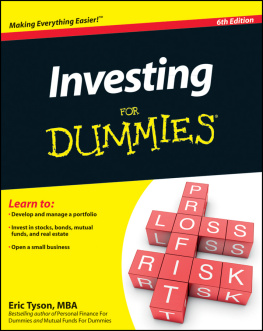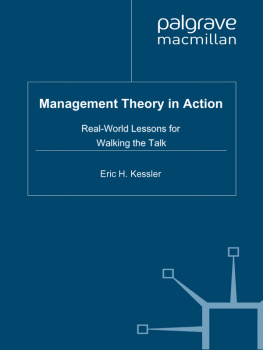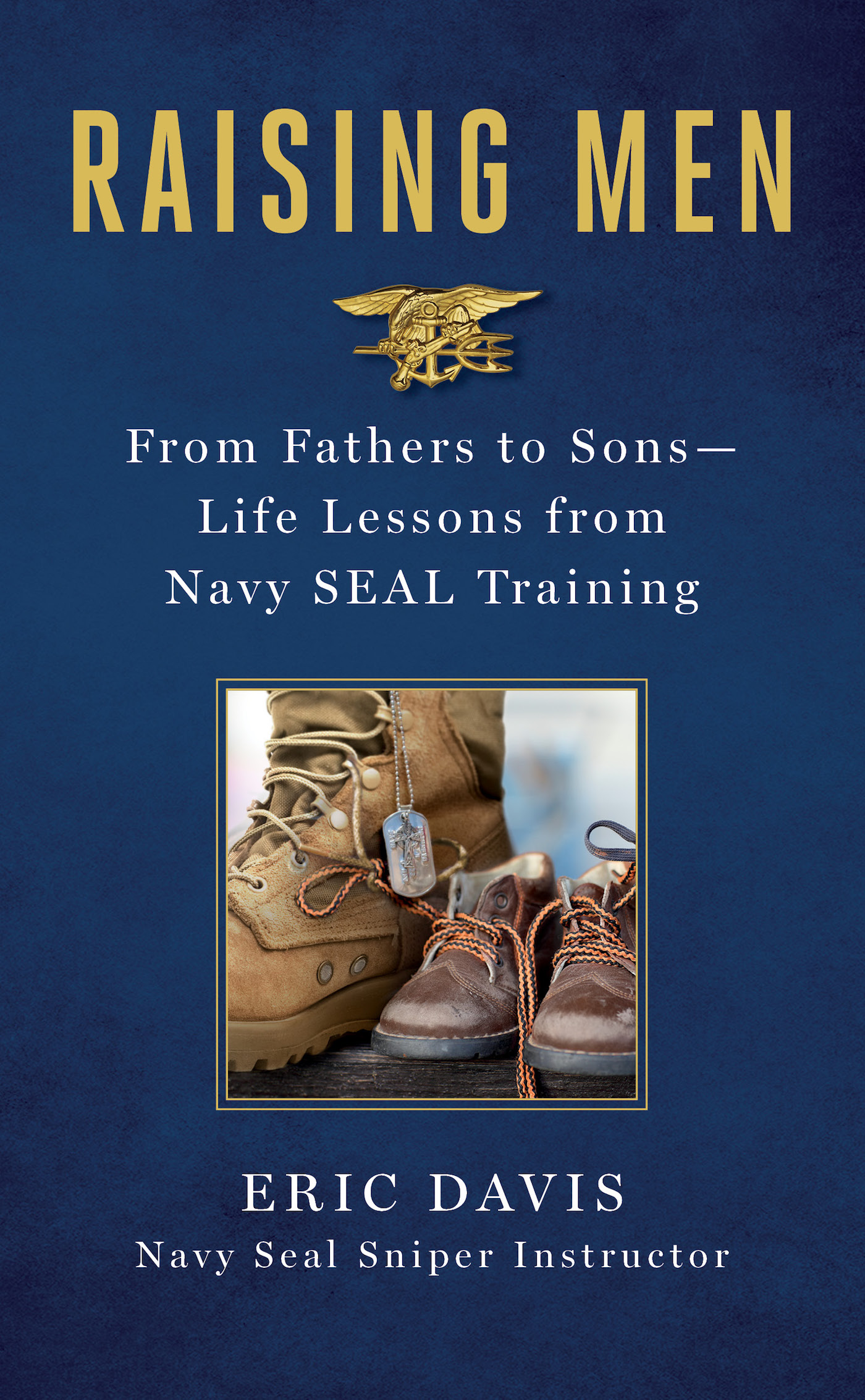Contents
Guide

The author and publisher have provided this e-book to you for your personal use only. You may not make this e-book publicly available in any way. Copyright infringement is against the law. If you believe the copy of this e-book you are reading infringes on the authors copyright, please notify the publisher at:
us.macmillanusa.com/piracy.
The stories in this book about SEALs and their sons are true. However, some names and details have been changed. In particular, no SEAL has been named or identified without his express approval.
Because of my special training, application of SEAL principles to my parenting has at times involved situations that might be dangerous for the average child or father. Readers should, of course, not attempt to duplicate activities that would be dangerous for them, and they should apply common sense in assessing their capacity to follow, or as necessary to modify, the lessons presented in this book.
Sweating and dehydrated in the hot desert of Niland, California, I had two hours left on this last stalk, and if I didnt pass, I would be dropped from sniper school.
I had already been on my belly crawling for hourstoward the wrong target. After spending four weeks, six hours a day, in the desert, I still hadnt mastered the art of stalking my target. Somehow through instinct, luck, and sheer will I made it to my final firing position (FFP) with five minutes left to build and take my shot when suddenly I heard
Freeze!
It was the sound that every sniper student dreaded: An instructor in the observation post (OP) had spotted a student in the field. Was it me? Was I out in the open? Did I shake a tree? Several minutes went by. A walker, or field instructor, passed within inches of me. I choked down some half-dry saliva and sand resting in the back of my throat, expecting to hear the sniper-career-ending words Sniper at your feet!
Stay lower, the walker whispered mercifully instead. I think they can see anything above my knee. He walked away toward the crackle of a radio from the other side of the field. I was still safe.
I remained perfectly still. This exercise was all about being stealthy, about getting your simulated shots off while under intense observation. The objective was to take two shotsthe first while you were in your FFP and not under direct observation, and the second as the walker worked you, which meant he got within 10 yards of you, allowing the instructors in the OP to watch you as you chambered and shot the second blank. They wanted to evaluate your muzzle blast to see if there would be dust or leaves flying up. A Navy SEAL sniper was expected to be invisible while he was firingeven when someone was looking right at him with the best binoculars that money could buy.
With only two minutes left to do what normally takes between thirty minutes and two hours, I got in position to take my shots. Hoping the instructors gaze had moved away, I chambered my round, took a deep breath, and sprinted to a nearby tree. Standing out like a set of dogs balls and with time ticking down, I abandoned all strategies of stealth and counted on luck as I dove barrel-first into the tree
Bang!
I shot my first round just before the timer went off and thought, Oh, shit. I just failed sniper school. (The rules say that once you take your first shot, you cant move or do anything to improve your position, and my position needed some major improvement.) I waited perfectly still for the walker to work me. After signaling the instructors in the OP to look my way, he said, Shot in three, two, one, fire! and I took my second shot.
Click.
Nothing happened.
Shit, I thought, I had a dud.
Id have to find and chamber another round while they were watching, which, if I had brought another round, might not have been so bad.
Well, I guess youre going to have to try that one again. I hope it works, brother, the walker said, more as a teammate than as my instructor.
I rechambered the dud blank and recycled the bolt of my Remington 700. When the sound of the gunfire settled, the walker confirmed I was within the proper distance of my target, 180 to 220 yards, and then said the words that, to this day, I still cannot believe: You passed.
CHASING THE BULL
Becoming a father is not much different than becoming a sniper. Its hard, not a lot of guys can easily pull it off, and it requires incredible amounts of patience, discipline, and focus. Were out in front trying to locate, stalk, and take down high-value targets to protect whats ours while under direct observation and criticismfrom spouses, kids, other parents, society. We crawl for days, or years, trying to make forward progress, leading our families through unknown territory as we figure things out for ourselves, depending on luck and a whole lot of mercy to achieve our objectives.
There was a phrase I used as a sniper instructor to explain to my students what was preventing them from consistently hitting their targets. I called it chasing the bull (bull is short for bulls-eye): They would continually rely on what seemed obvious and intuitive to make their shot without ever considering the possibility that the source of their problem might lie elsewhere. Many factors affect a snipers ability to successfully and reliably nail a target. The most obvious is his scope, the magnifying optic with embedded crosshairs mounted on the top of his rifle: Turn the knob five clicks to the right, move the impact of your bullet five inches to the left. Easy. However, scopes are rarely what cause snipers to miss. Many times, the source of the trouble is less obvious. Wind, lighting, humidity, body position, trigger squeeze, air density, angles, body alignment, respirations, and even the rotation of the earth can become factors.
These elements often get missed or ignored because on their own they have a limited impact on the accuracy of a shot; however, together, they canand doadd up to a complete miss. Making learning even more difficult is that many of these factors change moment by moment. I once saw a sniper in training attempt to take a head shot from 800 yards away and, because of some downrange wind, miss to the right. He then readjusted his scope to the left, because he assumed it was incorrectly set rather than considering the possibility that he had misread or missed the wind. When he took his next shot, the previously unnoticed wind had stopped, and he fired and missed to the left. To him, unaware of the hidden force of the wind, it felt like there was something wrong with his gun. (Hell, you can miss an 800-yard head shot because you ate spicy food for lunch.)
And so begins the chase. Replace the scope, replace the gun, and nothing changes, or some shots hit and some shots miss. Many students have failed out of sniper school not because they were incapable of performing the tasks required, or because their equipment was faulty, but because they were unable to see beyond their current intuition and understanding. The concept that the direction of the sun coupled with the position of their body could cause them to miss a target today that they drilled yesterday was beyond them. Therefore, the cause of their failure remained hidden. Theyd have no recourse but to chase the bull.
As fathers we face the same challenges of sometimes hitting our targets and sometimes not. We rely on what we were taught by our own fathers or count on our intuition and cultural norms to pull us through, and when we get stuck or fail, we cycle through the solutions with which were most familiar and comfortable. We stick to what we know without considering what we dont know.












